Postgraduate Student Council
The Postgraduate Student Committee (PSC) was formed following the 8th iteration of the Postgraduate Bioethics Conference (PGBC) in 2014 at the University of Southampton by Alex Chrysanthou, Emma Nottingham, and Sacha Waxman, with David Lawrence as the first Chair of the Committee. These founding members of the Committee believed it was vital that we had a dedicated group who could nurture the postgraduate bioethics community and to ensure the PGBC continues to grow from year to year.
Bioethics is a unique discipline as it spans the various healthcare disciplines, law, philosophy and ethics, bringing together academics from diverse backgrounds with different expertise. This makes bioethics uniquely interdisciplinary which is both a blessing and a curse. A blessing because it allows for those working in bioethics to view ethical issues from different angles and various lenses. A curse because it can be difficult to find peers with similar topical interests as your own. Therefore, the main aim of the PSC and our annual PGBC is to nurture this unique community in the spirit of learning, knowledge exchange and academic interaction.
With these aims in mind, the Postgraduate Student Committee (PSC) itself consists of an interdisciplinary group of postgraduate students working in bioethics broadly defined- of healthcare practitioners, lawyers, ethicists and philosophers. Since 2015, the PSC has been under the umbrella of the Institute of Medical Ethics who have provided invaluable support and guidance, as well as bursaries to help ensure PGBC is accessible to as many postgraduate students as possible. We also receive support from the Wellcome Trust who have made many of our events over the last two years possible, the Analysis Trust and the Society for Applied Philosophy.

12 Years Whilst the Postgraduate Student Committee was officially formed in 2014, it has existed ad hoc for much longer

15+ Events Starting with the first Postgraduate Bioethics Conference in 2006, we have gone on to arrange a number of conferences, workshops, and other events to help foster a community of postgraduate bioethicists

500+ Attendees We are delighted that our events have attracted so many postgraduate students over the years. It is this enthusiasm that has kept us going, and which continues to build a truly interdisciplinary and international community of postgraduates with a shared interest in bioethics

Princess Banda (She/her)
Better Bioethics Lead
Princess is a socio-medical anthropologist who, amongst many things, is primarily a writer, educator, and researcher. Princess is currently a DPhil Anthropology student at the University of Oxford and is cultivating a research pathway which embraces the intersections and entanglements between socio-medical anthropology, women's health, racial and social justice, and critical qualitative research methods. Her areas of interest include racial health disparities, socio-structural and political determinants of health, biopolitics, biopsychosociality, and maternal health. Her doctoral thesis explores how obstetric racism is not only a significant risk factor in UK Black women's intergenerational experiences of violent and unethical maternal health, but how obstetric racism is a kind of biopolitics which reflects the UK's wider politics of race and anti-Blackness. In doing so, Princess is exploring critical ethnographic and qualitative mixed methods which are rooted in Black feminist politics of sisterhood and ethics of care, ultimately utilising narratives, life histories, and 'hybrid ethnography' as primary methods.
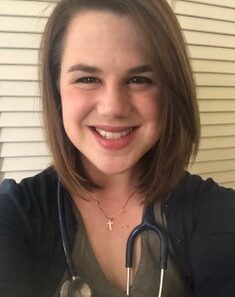
Sally Barker (She/her)
Co-secretary
Sally is a junior doctor based in London. Alongside part-time clinical work in Palliative Medicine, she is currently pursuing a masters in Medical Ethics and Law at Kings College London. She is particularly interested in research around palliative care provision for patients who lack capacity or face barriers to making their wishes known.
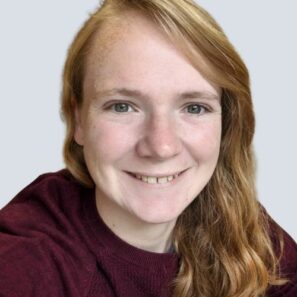
Caitriona Cox (She/her)
PGBC 2024 Conference Chair
Caitriona is an academic clinical fellow who splits her time between bioethics research and clinical training in internal medicine. She is working towards a PhD at Cambridge, exploring the ethical issues surrounding the communication of diagnostic uncertainty. She is chair of the PGBC24 committee and runs the Alumni Mentoring Network.
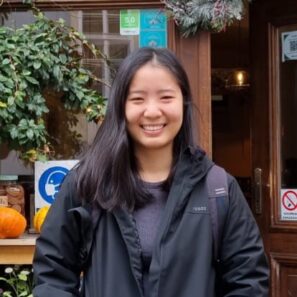
Ruth Goh
Co-secretary
Ruth Goh is an Imperial College London, Doctoral Candidate who is investigating public health ethics and policy, with an interest in tobacco control, respiratory health and child health. She is the current co-secretary of the Postgraduate Student Council.
Natalie Michaux
Chair

Emma Nance (She/her)
Emma is a second-year PhD student on the Wellcome Trust funded programme One Health Models of Disease: Science, Ethics, and Society at the University of Edinburgh. Her current work examines the bioethical implications of human and non-human biosurveillance with a view towards integrating and updating the policies under a One Health and global justice framework. She was co-chair of the PGBC23 conference.
Joshua Parker
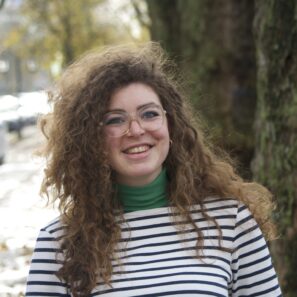
Jannieke Simons (She/her)
Jannieke is a PhD student at the University Medical Centre Utrecht in The Netherlands. With a BSc in Nanobiology and an MA in Applied Ethics, her particular interest in the ethics of biotechnological and biomedical innovations comes as no surprise. Her PhD research investigates the ethical dimensions of human somatic prime editing therapy for inherited cardiomyopathies.
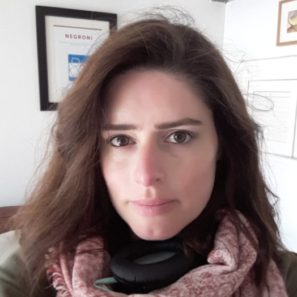
Rachel Thompson
Rachel is undertaking a PhD in Research Ethics at Swansea University.

Lydia Tsiakiri (She/her)
Social Media & Website Manager/Alumni Network Lead
Lydia is a Ph.D. Student in Political Science at Aarhus University, Denmark. Her current research focuses on public health ethics, deontological ethics, discrimination, distributive justice, and personal responsibility in the health and healthcare context through the lens of an integrated empirical ethics approach. She is our web manager and runs the Alumni Mentoring Network.
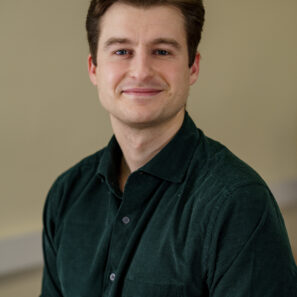
Jamie Webb (He/him)
Jamie Webb is a PhD student in the University of Edinburgh’s Centre for Technomoral Futures, working on the ethics of artificial intelligence in healthcare resource allocation within the field of empirical bioethics. Jamie was previously a research associate in the Division of Medical Ethics at the NYU Grossman School of Medicine. He has a BA in Philosophy and an MSci in History and Philosophy of Science from the University of Cambridge, and an MA in Bioethics from NYU, where he studied on a Fulbright scholarship. He was co-chair of the PGBC23 conference.

Lucy Yanow (She/her)
Lucy Yanow recently completed her MSc in Bioethics and Society at King’s College London. Her dissertation, the Haunted Womb; Ghost Dancing Post Roe vs. Wade won the prize for best performance in her cohort. Previous to returning to academia, she was an unlicensed reproductive carer in the California Bay Area; a full spectrum doula, a home birth midwife apprentice, and a social work associate at the Women’s Options Center, the abortion clinic at San Francisco General Hospital. Her research interests include care ethics, feminist science and technology studies, relational autonomy and post-humanism. She hopes to start PhD research in fall 2024.
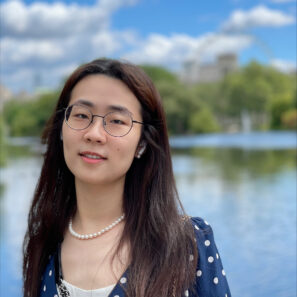
Shengyu Zhao (She/her)
Shengyu Zhao is a PhD student at the Centre for Ethics in Medicine, University of Bristol. Her research interests broadly encompass transcultural and cross-cultural bioethics, with a specific focus on palliative care and end-of-life decision-making. Her current project centres on exploring ethical challenges in palliative care within Mainland China.
